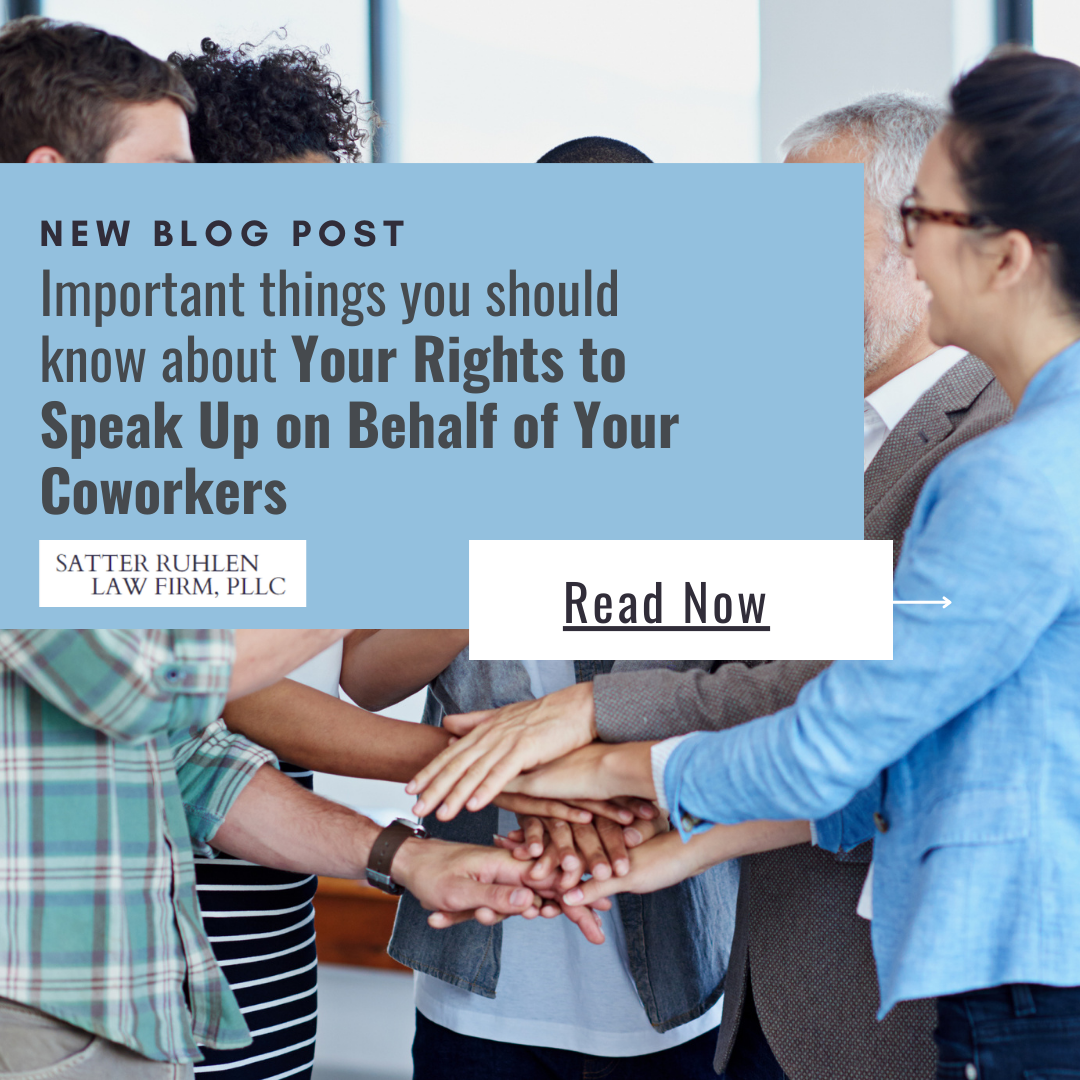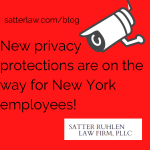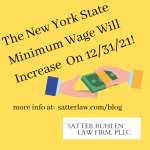On March 31, 2021, Governor Cuomo signed the Marijuana Regulation and Taxation Act [“MRTA”] into law. The MRTA legalizes the recreational use of marijuana in New York for individuals over the age of 21 and expands New York’s existing medical marijuana program. While the law takes effect immediately, the sale of recreational marijuana is not expected to become legal for at least a year from the enactment date while the state works to create a regulatory framework for the cannabis industry.
This blog post will discuss how the use of marijuana, whether for a medical or recreational purpose, may impact your workplace rights. As a warning to all, it is important to understand that the recently passed legislation does not give one free license to show up for work under the influence of marijuana. In fact, some workplaces can still impose discipline if an employee tests positive even if s/he was not under the influence while at work. It must be understood that if you are under the influence of marijuana at work you are subject to discipline, up to and including termination. If you test positive and your employer is subject to safety regulations, your employer may impose similar discipline, even if you were not under the influence while at work.
Medical Marijuana Use
New York’s Compassionate Care Act [“CCA”] allows for, and regulates, the cultivation, distribution, prescription, and use of marijuana for medical purposes. The CCA allows approved organizations, such as hospitals and community health centers, to dispense medical marijuana to patients who have been certified by their health care provider and who have registered with the state Department of Health. Although federal criminal law forbids the possession, distribution, sale, or use of marijuana, thanks to the CCA, in New York the United States Department of Justice does not currently enforce criminal law provisions against individuals and entities engaged in the cultivation, transportation, delivery, prescription, or use of medical marijuana in accordance with state law.1
The CCA states that “certified patients” have a “disability” for the purposes of state antidiscrimination law. N.Y. Pub. Health L. §§ 3360(3), 3369(2). As a result, under New York State Human Rights Law, employers may not discriminate against an employee or job applicant based on lawful use of medical marijuana. N.Y. Exec. L. §§ 292(21), 296(1)(a). While under New York’s CCA, people with serious medical conditions may legally use marijuana in the manner prescribed by a registered care provider who is licensed to dispense, it is important to understand that this does NOT mean that a certified medical marijuana patient can show up for work under the influence or use medical marijuana in a manner that violates workplace rules. In addition, the CCA specifically exempts employers from doing “any act that would put the [employer] in violation of federal law or cause it to lose a federal contract or funding.” This means your employer may be exempt from following the CCA if subject to federal regulation, such as Department of Transportation rules.
Here are a few examples of how New York’s Human Rights Law and the CCA may, or may not, protect your rights if you are a certified medical marijuana patient.
I’m a certified user of medical marijuana and, while I was not under the influence of marijuana at work, I tested positive after a random drug test. Can I get fired?
It depends. As a certified medical marijuana patient, you are “disabled” under New York law and, therefore, are a member of a protected class. As such, before imposing discipline, your employer must engage in a good faith interactive process to assess your needs and determine if there is a way to accommodate your use of medical marijuana that does not impose an undue hardship on the employer. If you work in a safety sensitive position, in a job subject to federal regulation, and/or your use of medical marijuana poses a direct threat to yourself, co-workers, or customers, your employer may have grounds to terminate even if you were not under the influence of marijuana while at work.
I am a certified medical marijuana patient and report to work under the influence of marijuana or use marijuana during my shift. Can I get fired?
Yes. In fact, a New York employer is free to fire, discipline, or take other adverse action against an employee who uses marijuana at work or shows up to work under the influence of marijuana—even if you need it to treat a medical condition. The understanding is that marijuana use to address your underlying health condition must occur when you are off the clock and at intervals that allows you to be at work when you are not under the influence.
I am a certified medical marijuana patient with a conditional offer of employment. I tested positive for marijuana and synthetic tetrahydrocannabinols (THC) during the pre-hire drug test. After explaining that I am a certified medical marijuana patient, my employer withdrew the offer on the spot. Is this legal?
It depends. Once your prospective employer is on notice that you are a certified medical marijuana patient, the law requires the employer to engage in a good faith interactive process to assess your needs and determine if there is a reasonable accommodation that will allow you to perform the essential functions of your job as a medical marijuana patient. An employer is obligated to participate in an interactive process even if the employer is subject to federal regulations that prohibit hiring or retaining employees that test positive for scheduled substances. If there is a way to accommodate your use of medical marijuana that does not impose an undue hardship on the employer, or create a direct threat to yourself, co-workers, or customers, you should not be denied the job. If you feel the sole reason you were not hired is due to your status as a medical marijuana patient, you may want to contact an attorney to discuss your rights.
If you are applying for a job in New York City on or after May 10, 2020, you will benefit from a local law amending the New York City Human Rights Law to prohibit pre-employment testing for marijuana and synthetic tetrahydrocannabinols (THC). See N.Y. Pub. Health L. §§ 3302(21), 3306(d)(21). This prohibition on marijuana testing in the hiring process, however, does not apply if you are seeking employment in a safety sensitive position, such as law enforcement, elder care, or medical services.
Recreational Marijuana Use
The MRTA amended the New York Labor Law provision that prohibits employers from refusing to “hire, employ or license, or to discharge from employment or otherwise discriminate against an individual” for engaging in legal recreational activities outside of work. N.Y. Lab. L. §201-d(2). As amended, the provision now provides that the recreational use or consumption of marijuana outside of work hours, off an employer’s premises, and without use of the employer’s equipment or other property, constitutes lawful recreational activity.
As a practical matter, the MRTA’s amendment of the Labor Law limits an employer’s ability to discipline employees for their recreational use of marijuana but, be forewarned, there are still employment related limits imposed on an employee’s right to partake and exceptions to the law that allow an employer to impose discipline. Consider the following:
- Nothing in the law “is intended to limit the authority of…employers to enact and enforce policies pertaining to cannabis in the workplace” or “exempt anyone from any requirement of federal law.” In other words, employees still must adhere to workplace drug policies. Also, under federal law, marijuana use is still illegal. The CCA’s protection from criminal prosecution for use of medical marijuana does not extend to recreational use.
- “Work hours” means all work time, “including paid and unpaid breaks and meal periods” and “all time the employee is actually engaged in work.” N.Y. Lab. L §201-d(c). As such, an employee is subject to discipline for marijuana use during break time or a rest period during the workday, even if not on the clock.
- Employers retain their ability to discipline an employee who is “impaired” by marijuana while on the job. The MRTA defines the term “impaired” as when an “employee manifests specific articulable symptoms while working that decrease or lessen the employee’s performance of the duties or tasks of the employee’s job position, or such specific articulable symptoms interfere with an employer’s obligation to provide a safe and healthy workplace, free from recognized hazards, as required by state and federal occupational safety and health law.” However, the MRTA does not define “specific articulable symptoms,” and until the state releases interpretive guidance, employers are likely to define the term broadly.
- An employer does not violate N.Y. Lab. L. §201-d if its response to an employee’s recreational use of marijuana: 1) is required by state or federal law; or 2) if failing to do so would leave the employer in violation of federal law or lead to the loss of a federal contract or funding.
If you have questions about your workplace rights surrounding the legal use of marijuana, you should consider consulting an attorney.





